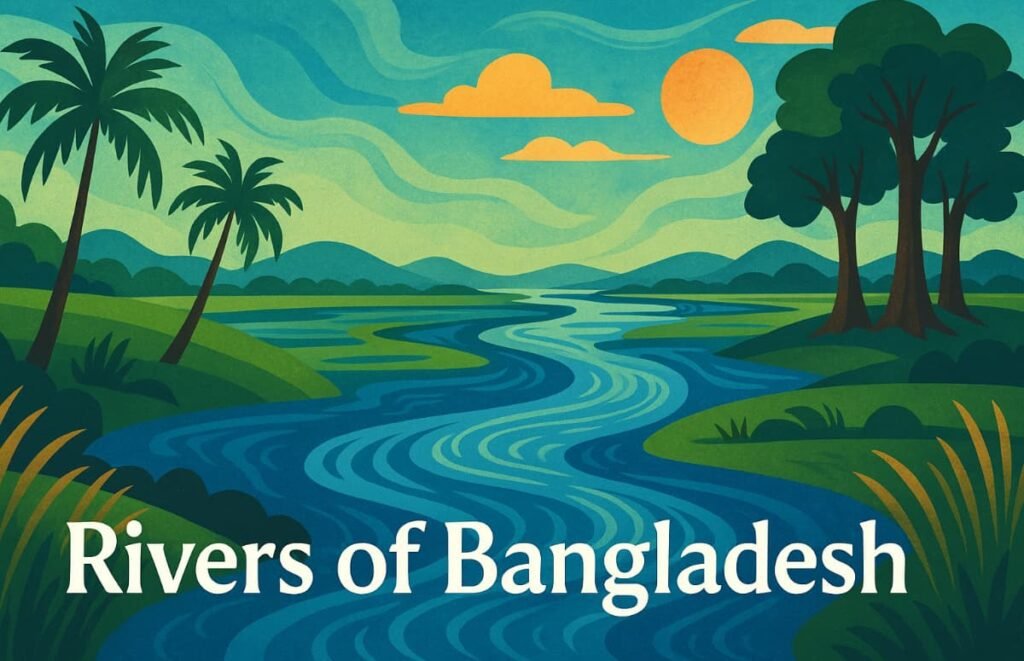Rivers Of Bangladesh Paragraph: 200 & 400 Words

Rivers Of Bangladesh Paragraph: 200 Words
Introduction
The rivers of Bangladesh are the lifeblood of the country, shaping its geography, economy, and culture. With over 700 rivers, the country is one of the most riverine in the world.
Importance of Bangladesh’s Rivers
The rivers of Bangladesh support agriculture, fishing, and transportation. Major rivers like the Padma, Jamuna, and Meghna provide fertile soil and are essential for irrigation. These rivers also act as natural highways connecting remote regions.
Challenges Faced by Rivers
Despite their value, Bangladesh’s rivers face threats such as pollution, encroachment, and siltation. Climate change and upstream diversion have worsened seasonal flooding and erosion.
The preservation of the rivers of Bangladesh is crucial for national sustainability and ecological balance.
Paragraph: 400 Words
Introduction
The rivers of Bangladesh are not just water bodies they are the veins of the nation. With a dense network of rivers, the country has been formed and nurtured by their continuous flow for centuries.
Major River Systems
The Ganges (Padma), Brahmaputra (Jamuna), and Meghna form the three major river systems. These rivers, along with their hundreds of tributaries, define the deltaic landscape. The rivers of Bangladesh help recharge groundwater, support ecosystems, and serve as transportation routes.
Economic Role of Rivers
The economy of Bangladesh heavily depends on its rivers. Agriculture benefits from seasonal floods that deposit nutrient-rich silt. Bangladesh’s rivers are also critical for inland navigation, supporting both trade and passenger movement. River ports like Narayanganj and Khulna handle significant traffic.
Environmental & Social Significance
Beyond economics, rivers shape rural life and local culture. Many festivals, rituals, and livelihoods are tied to Bangladesh’s rivers. Unfortunately, pollution from industrial waste and domestic sewage is threatening aquatic biodiversity.
Climate Challenges and Management
Due to climate change, river behavior has become unpredictable. Flash floods and riverbank erosion have displaced thousands. Integrated water management and transboundary river treaties are now crucial to protect Bangladesh’s rivers.
In conclusion, protecting Bangladesh’s rivers is a shared responsibility. These rivers define the country’s identity and hold the key to its future.